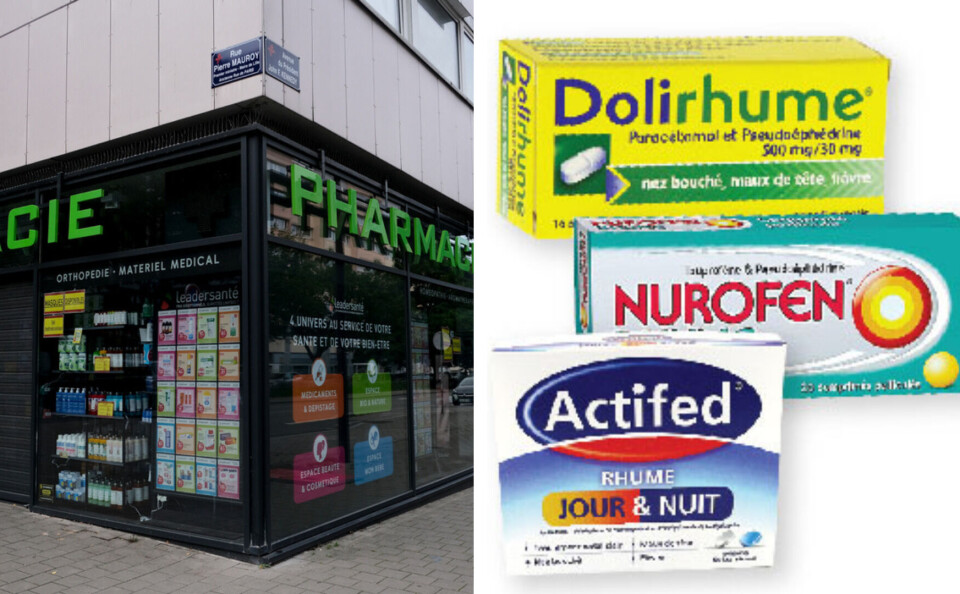-
Sex on work trip classified as workplace accident under French labour law
Classification requires employers inform the inspection du travail of the event within the 12 hours of an incident
-
Scam calls in France more than double in a year
Complaints about unsolicited calls are second only to those about fibre optic internet
-
‘Medical deserts’ major issue in upcoming local elections in France
Access to healthcare is now a more pressing concern than education, mayors say
Why medicines with a ‘disproportionate risk’ remain on sale in France
These cold remedies increase the risk of heart attacks and strokes, according to health authorities

People are being warned against taking certain cold medicines which can lead to severe health risks and yet these treatments are still available for purchase.
We look at why this is the case, and what is being done to protect consumers.
The medicines in question all contain a cocktail of active drugs including a vasoconstrictor, an antihistamine and paracetamol or ibuprofen, which, when together, can lead to a higher risk of heart issues and strokes.
This week, pharmacists and doctors were warned against prescribing these treatments by the French agency for medicines and health ANSM (l’Agence nationale de sécurité du médicament et des produits de santé).
It has raised the alarm previously but repeated the same advice after concerns that people may still be using them.
Read more: Health alert in France over common cold medicines
How long have authorities known about the health risk?
Health authorities first became aware of the potential health risks posed by these treatments in 2006.
At that time, the use of a pseudoephedrine to unclog blocked noses via a vasoconstriction effect, was judged to present a “disproportionate risk” to patients by the medical review Prescrire.
The national health advisory board, the Haut autorité de la santé (HAS), said in 2012 that the medical value of such treatments was “low[…] due to their insufficiently established efficacy and the cardiovascular risk”.
Between 2012 and 2017, ANSM recorded 40 cases of adverse reactions to the treatments, including two deaths.
Why are the medicines still available?
Since 2017, the position of ANSM is that cold medicines using the combined effects of a vasoconstrictor and an antihistamine should be avoided.
In that year, ANSM banned advertising for these medicines in France, and began an information campaign for pharmacists and patients.
However, ANSM cannot ban medicines from sale in France.
As a member of the European Union, medicines for sale in France must be approved by the European Medicines Agency (EMA).
In February 2023, ANSM referred these cold medicines to the EMA, which will rule on the matter, and advise the European Commission on a potential ban.
The EMA has not given a date for its decision.
Read more: PHOTOS: the cold medicines on sale - but to be avoided - in France
What do the manufacturers say?
Unsurprisingly, manufacturers do not agree with ANSM. Pharmaceutical association NèreS called ANSM’s position “premature and alarmist” in a press release.
“NèreS recommends caution and awaits the conclusions of the European authorities with interest,” it said.
The association says that use of treatments including pseudoephedrine should only follow a careful consideration of a patient’s needs, along with their age, weight, pathologies and vulnerability to side-effects.
NèreS says that it is willing to update the usage guidelines for these medicines.
























